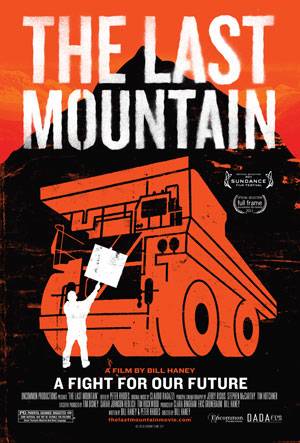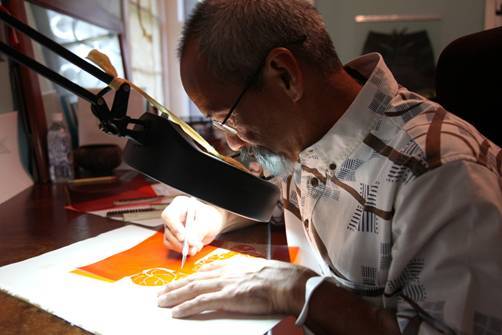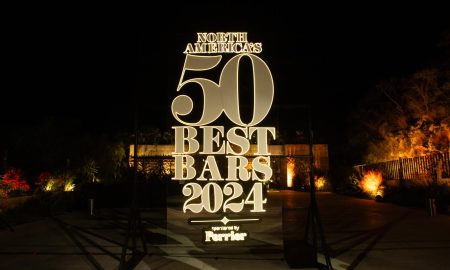Just when you thought it had been swallowed up by Starbucks and crowded out by too many big box stores, New York City continues to prove it remains a locus of creativity and progressive thought. Exemplary of that–one of the best cultural happenings to spring up here in a long time–React to Film, the documentary film screening series founded by Coralie Charriol and Dennis Paul. Held at Soho House, React to Film was founded with the intent to screen documentary films that focus on the more important and controversial issues of the day—nuclear warfare, food and farming, teenage pregnancy—and by doing so, hope that the audience viewing it reacts to the film proactively. The goal is to educate viewers, urge them to action, and to keep the dialogue going after people have left the movie so that they take up the cause, in any way they can.
Each film in the React to Film series has the benefit of being screened before it hits bigger theaters nationwide, and done so to a select group in Soho House’s petite screening room. The audience of editors, friends, film critics, and socials are a discriminating group whom Charriol and Paul have culled from years of living and socializing in the city and abroad. The couple, seasoned New Yorkers steeped in cultural awareness on many levels, couldn’t feel more passionately about the series and the impact its making. The films chosen come from the highest caliber filmmakers—like Lucy Walker, whose film Waste Land, about artistic expression among extreme poverty in Rio de Janeiro, and Countdown to Zero, which focused on the proliferation of nuclear warfare, were both screened by RTF; or director James Houston, whose film Let’s Talk About Sex looked at teen pregnancy and the taboo that continues to surround sexual activity in young people in Twenty-First Century America. Two screenings are held, with a Q&A between, where Charriol or Paul invite the director and/or producer to discuss how and why the film was made and to answer questions from the audience.
The most recent film to be shown by RTF was the documentary, The Last Mountain (thelastmountainmovie.com), by producer Clara Bingham, writer and co-director Bill Haney, and co-director Peter Rhodes, with hosts Matthew Modine, Marcia Mishaan, and Prosper Assouline (there are always hosts of note as well, to help bring further attention to the film). Shown May 16 to the usual sophisticated crowd, The Last Mountain focuses on the battle over Big Coal in Coal River Valley, West Virginia and in particular the battle to save Coal River Mountain, the last in the region to be mined by corporations like Massey Energy, the company with a toehold on the industry there, and on people’s lives. The name of their game is Mountain Top Removal, a type of mining in which the mountain is literally blown apart to get at the coal many feet beneath. The consequences are more than just environmental, as one would expect, of soil and chemicals being spewed far and wide-and especially into the water supply; they are personal and they are grave.
Multiple citizens from the towns below speak in the film about the havoc that’s been (and being) reeked upon them by flying coal ash and raining toxins, such as Jennifer Hall-Massey who stands in the cancer cluster in her town, Prenter, West Virginia, where she reports that six of her neighbors-including young children and her 29-year-old brother-have been stricken by brain tumors or died from them (her brother was a victim). Ed Wiley, a former Massey Energy contractor (many of those who have become activists were once workers themselves) refused to turn a blind eye to the incessant sickness and pollution in his community, especially in light of the fact that the Marsh Fork Elementary School in Coal River Valley, which his granddaughter Kayla attends, sits in the shadow of a Massey coal processing plant. It’s no mistake that cancer has also run rampant throughout the student body and faculty. Wiley has staged numerous protests to have the school moved, one of which forms the most potent scene in the film, where he leads a rally at the state house calling for Governor Joe Manchin to come out and hear their plea. “Go get Joe!” the protestors loudly shout, banging drums and tambourines as police warn them to cease and desist. When they refuse, the protestors are carted off one-by-one to jail, including a 91-year-old woman. Shame, it seems, has no boundaries on either side of these battle lines.
To say that one is spurred to action by this work of genius is a gross understatement: This writer wanted to leap out of her chair upon the closing credits and buy a one-way ticket to Appalachia. To date, 500 mountains have been flattened—500—in the name of harvesting coal and, more so, in the name of the immense profits that come from it. The obvious change to the landscape has also done widespread damage to Appalachian communities. More than 40 years ago, Robert Kennedy toured Appalachia, bringing its plight to the consciousness of the nation and reporting unabashedly that the destructive techniques of mining companies were permanently impoverishing the surrounding communities—who rely almost solely on those mining companies for employ, one of very few sources of work in the area. Some 40 years later, it is his son, Robert Kennedy, Jr. who is taking up the cause with the citizens of those communities, speaking at their protest rallies of the “moonscape” left behind by the constant blasting of Coal River Mountain and taking people to task, like those workers who are on the side of big coal or like Bill Raney, President of the West Virginia Coal Association, asking point blank how Massey Energy can get away with 60,000 violations—the amount racked up in 1 year—and still do business (he compares each violation to a bank robbery, a crime after just one committing people are jailed for). Kennedy is fierce in his actions, and customarily incredibly well-informed on the issue, stating that burning coal is the number one source of greenhouse gases, and citing that certain levels of the explosions conducted have a power on the level of the Hiroshima bomb.
The Last Mountain has already garnered accolades as Official Selections by both the Sundance and Full Frame Film Festivals. You will perform the biggest act of civil obedience by attending a screening of The Last Mountain, spreading the word, and subsequently thinking twice about the amount of energy you use and where it comes from. Go see this film.





















